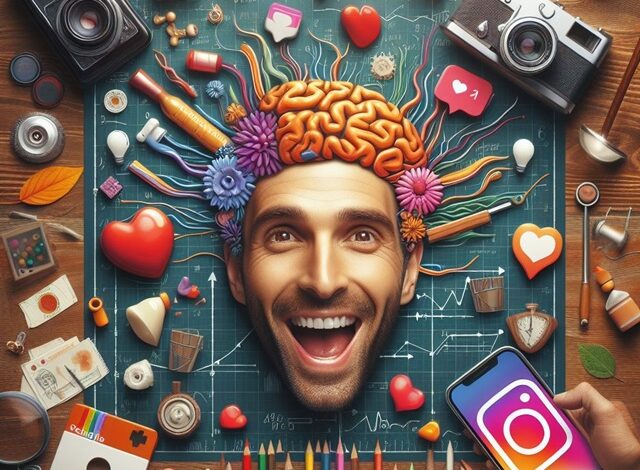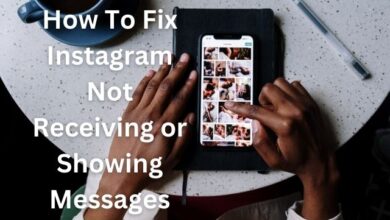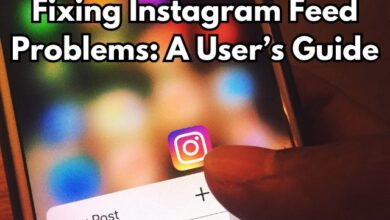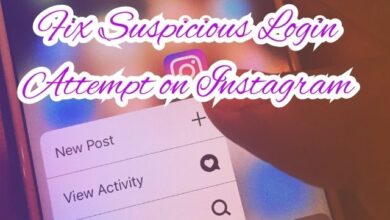5 Surprising Facts: Instagram Likes Psychology

In the realm of social media, Instagram Likes Psychology plays a pivotal role in shaping user behavior and interactions. This fascinating field of study delves into the psychological aspects behind the seemingly simple act of ‘liking’ a post on Instagram.
The ‘like’ button on Instagram, represented by a heart icon, has become more than just a tool for expressing appreciation for a post. It has evolved into a powerful psychological trigger that can influence emotions, self-esteem, and even addictive behavior.
The psychology behind Instagram likes is complex and multifaceted. It encompasses various elements such as the dopamine effect, social validation, fear of missing out (FOMO), impact on mental health, and the illusion of popularity. Each of these elements contributes to the overall psychological impact of Instagram likes on users.
Understanding the psychology of Instagram likes can provide valuable insights into user behavior, social dynamics, and the broader implications for mental health and societal norms. This article aims to uncover five surprising facts about Instagram Likes Psychology, shedding light on the profound influence of this social media phenomenon.
In the following sections, we will delve deeper into each of these aspects, exploring the surprising truths behind Instagram Likes Psychology.
The Dopamine Effect of Instagram Likes Psychology
In the digital age, the ‘like’ button on Instagram has become a potent source of dopamine, a neurotransmitter that plays a key role in our brain’s reward system. Each time a user receives a ‘like’, it triggers a small dopamine release, creating a sense of pleasure and satisfaction.
This dopamine effect is not exclusive to Instagram. It’s a common phenomenon across various social media platforms. However, Instagram, with its visually appealing interface and emphasis on ‘likes’, has become a particularly effective dopamine trigger.
The dopamine effect is one of the key factors behind the addictive nature of Instagram. Users often find themselves constantly checking their phones for new likes, driven by the desire for that dopamine rush. This can lead to compulsive behavior, with users spending hours scrolling through their Instagram feeds, posting pictures, and anxiously waiting for likes.
Recent studies have shown a correlation between the amount of time spent on Instagram and the level of anxiety and depression. The constant pursuit of likes and the dopamine rush they provide can create a cycle of addiction that can be difficult to break.
However, it’s important to note that the dopamine effect is not inherently negative. Dopamine plays a crucial role in motivation, learning, and enjoyment. The key is balance and mindful usage of social media.
In the next section, we will explore another psychological aspect of Instagram likes – social validation.
Social Validation
Social validation is a powerful psychological phenomenon, and Instagram likes play a significant role in this process. When a user receives a ‘like’ on their post, it serves as a form of social validation, reinforcing their sense of self-worth and belonging.
Instagram, like other social media platforms, has become a virtual stage where users present their lives to others. Each ‘like’ is a form of applause, a validation of the user’s performance on this stage. This can lead to a sense of accomplishment and satisfaction, further driving the user’s engagement with the platform.
However, the pursuit of social validation through Instagram likes can also have negative implications. Users may start to equate their self-worth with the number of likes they receive, leading to anxiety and self-esteem issues. They may also start to tailor their posts to what they believe will garner the most likes, rather than what truly reflects their authentic selves.
Recent changes in Instagram’s policy, such as the option to hide like counts, are aimed at mitigating these negative effects. By reducing the emphasis on likes, Instagram hopes to shift the focus back to content and authentic expression.
In the next section, we will delve into another aspect of Instagram Likes Psychology – the Fear of Missing Out (FOMO).
The Fear of Missing Out (FOMO)
The Fear of Missing Out, or FOMO, is a pervasive apprehension that others might be having rewarding experiences from which one is absent. This social anxiety is characterized by a desire to stay continually connected with what others are doing.
Instagram, with its constant stream of updates and likes, can intensify this feeling. Seeing others receive likes on their posts can lead to a fear of missing out on the validation and social acceptance that those likes represent. This can drive users to spend more time on the platform, constantly checking for updates and comparing their likes with others.
However, it’s important to remember that Instagram is often a highlight reel of people’s lives, not an accurate representation of their day-to-day reality. The number of likes a post receives does not necessarily reflect its real-world value or the quality of the person’s life who posted it.
Recent studies have shown that FOMO can lead to feelings of inadequacy, anxiety, and depression. It’s therefore crucial to approach Instagram and other social media platforms with a balanced perspective, understanding that likes are just one small aspect of the overall picture.
In the next section, we will discuss the impact of Instagram likes on mental health.
The Impact on Mental Health
The impact of Instagram likes on mental health is a topic of growing concern among psychologists and social scientists. While Instagram can be a platform for inspiration and connection, the pursuit of likes can also lead to negative mental health outcomes.
The constant comparison with others, the pressure to receive likes, and the fear of missing out can contribute to feelings of anxiety and depression. Users may start to equate their self-worth with the number of likes they receive, leading to lower self-esteem and feelings of inadequacy.
Recent studies have shown a correlation between the amount of time spent on Instagram and the level of anxiety and depression. Users who spend more time on the platform and place a higher value on likes are more likely to report feelings of depression and anxiety.
However, it’s important to note that Instagram is just one factor among many that can impact mental health. Personal circumstances, offline social support, and individual personality traits also play a significant role.
Instagram has acknowledged these concerns and has taken steps to mitigate the potential negative effects. For example, they have introduced features that allow users to hide like counts, aiming to shift the focus from likes to content.
In the next section, we will explore how likes can create an illusion of popularity.
The Illusion of Popularity
In the world of Instagram, likes have become a measure of popularity. The more likes a post receives, the more popular it appears to be. However, this can create an illusion of popularity that doesn’t necessarily reflect reality.
Instagram likes are visible and quantifiable, making them an easy way to gauge popularity. However, they only represent a fraction of a user’s interactions and relationships. They don’t account for offline interactions, personal qualities, or the depth of relationships.
Moreover, the number of likes can be influenced by many factors, such as the time of posting, the use of hashtags, and even the use of certain filters. Some users may also resort to tactics like buying likes or using bots to inflate their like counts.
This focus on likes can lead to a distorted perception of popularity, where the value of a post or a person is reduced to a single, easily manipulated number. It can also create pressure to portray an idealized image of oneself, leading to a disconnect between one’s online persona and real-life identity.
Instagram’s decision to hide like counts in some regions is a step towards reducing this pressure and shifting the focus from popularity to authenticity. However, the illusion of popularity persists, highlighting the need for a more nuanced understanding of social media dynamics.
In the next section, we will wrap up our discussion with a conclusion on Instagram Likes Psychology.
Conclusion
In this exploration of Instagram Likes Psychology, we’ve uncovered some surprising facts about the impact of ‘likes’ on user behavior and mental health. From triggering dopamine releases to creating an illusion of popularity, Instagram likes play a significant role in shaping our online experiences.
However, it’s important to remember that likes are just one aspect of our digital lives. They don’t define our worth or our success. As users, we have the power to change our relationship with likes, focusing more on authentic expression and less on external validation.
Instagram’s recent changes, such as the option to hide like counts, reflect a growing awareness of these issues. It’s a step towards a healthier, more authentic online environment.
As we continue to navigate the digital landscape, understanding the psychology behind features like Instagram likes can help us use these platforms in a more mindful and balanced way.
Frequently Asked Questions (FAQs)
1. What is the psychology of liking Instagram posts? The act of liking Instagram posts is tied to the brain’s reward system. Each ‘like’ triggers a dopamine release, creating a sense of pleasure and satisfaction. This can lead to a cycle of posting, receiving likes, and experiencing pleasure.
2. What is the psychology behind Instagram followers? Having a large number of followers can boost one’s self-esteem and validate their social standing. It can also create a sense of community and belonging. However, equating self-worth with follower count can lead to negative mental health outcomes.
3. Why do people care about Instagram likes? Instagram likes serve as a form of social validation. They can reinforce a user’s sense of self-worth and belonging. However, an overemphasis on likes can lead to anxiety and self-esteem issues.
4. Why do we crave likes on Instagram? Craving likes on Instagram can be attributed to the dopamine effect. Each ‘like’ triggers a dopamine release, leading to a sense of pleasure. This can create a cycle of posting, receiving likes, and experiencing pleasure.
5. Is liking posts flirting? Liking posts can be seen as a form of social interaction, but it doesn’t necessarily indicate flirting. It’s a way of showing interest or appreciation for a post.
6. Is liking an Instagram story flirting? Similar to liking posts, liking an Instagram story can be a way of showing interest or appreciation. However, it doesn’t necessarily indicate flirting.
7. What attracts followers? Quality content, consistent posting, engagement with followers, and use of relevant hashtags can attract followers. Authenticity and uniqueness also play a crucial role.
8. What makes someone want to follow you? People are likely to follow you if they find your content interesting, valuable, or entertaining. Consistent posting, engagement with followers, and authenticity can also make you more follow-worthy.
9. Why is 1,000 followers on Instagram good? Having 1,000 followers on Instagram can boost your online presence and credibility. It can also provide a larger audience for your content.
10. What if a girl likes your post? If a girl likes your post, it could mean she finds your content interesting or appreciates your post. It doesn’t necessarily indicate romantic interest.
11. Is it okay if he likes other girls posts? Liking posts is a common way of interacting on Instagram. It doesn’t necessarily indicate romantic interest. Communication is key in understanding the context and intent behind these interactions.
12. How do guys flirt on Instagram? Flirting on Instagram can take many forms, such as liking posts, commenting, sending direct messages, or posting flirty stories. However, online interactions can be easily misinterpreted, and it’s important to communicate clearly and respectfully.




